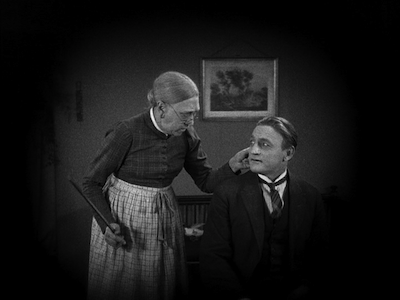Adieu au langage (Goodbye to Language)
Written and directed by Jean-Luc Godard
France, 2014
When I finally got around to seeing Alfonso Cuarón’s Gravity, the thing I kept saying to people was, “Isn’t it funny that this film needs to be seen in 3D and yet itself does not justify 3D’s place within cinema?” I still hold my “it’s fine” opinion on that film, denying its status as an Avatar-esque game changer, and I thought I’d have to keep searching for that. Luckily, I found it right off the bat at the New York Film Festival: Jean-Luc Godard’s Goodbye to Language redefines not only 3D in film, but quite possibly film itself.
Admittedly, I am not a huge fan of Godard (despite his masterwork Vivre sa Vie being in my top ten favorites of all time). His rhetorical style, abrasive and uncompromising, has always alienated me. I have an appreciation for Breathless, certainly acknowledging its iconic status in cinematic history, and I get a mild kick out of Pierrot le Fou and Week End, but listening to his characters ramble on about his Marxist ideals and groaning through his New Wave-era sexism never interested me.
And yet I found myself attracted to Goodbye to Language for some reason. It’s possibly the most radical film I’ve ever seen, and yet that alienating quality seems to have dissipated. There’s fury in each frame, passion that belongs to capital-G Godard. The vitality that is present in his ‘nouvelle vague’ work is here on display again, in a rigorous work that’s both a whirlwind piece of cerebral stimulation and a feast (or possibly headache) for the eyes. (Note: This is my first post-New Wave Godard film.) Godard’s tendency to namedrop is, at times, the exact thing to distance a viewer from his films. But these namedrops, references to literature, film, music, and politics are of an impish nature. Yes, understanding these references will enrich your experience, but it becomes a game where, like Whose Line Is It Anyway?, the points don’t matter. (Let it not be said that Jean-Luc Godard, the iconoclastic auteur, is above poop jokes.) Its plot seems a bit like Thérèse Raquin, but that’s hardly priority here. His opinion of himself is irrelevant: the vehemence of Goodbye to Language is transcendent of narrative, form, and art itself.

For the first time, 3D seems to be used to its fullest potential, as Godard experiments with his two (primarily DSLR) cameras to examine depth of image, eye movement, mise-en-scène, and what these images, or what all images, mean to us. It contains Godard’s usual philosophical posturing, and yet that seems to be playful and taking second fiddle to allowing him to test the boundaries of what 3D can do. Words are overlaid on other words in a tongue-in-cheek way, images themselves are cheerily superimposed on one another, and in its most daring moments, Godard has one camera, or eye, pan while the other remains stationary, creating a nearly phantasmagorical concoction. Colors vary from the lurid to the dull, from the chiaroscuro noir origins of Breathless to overblown whites. Digital noise isn’t so much a distraction as a thing to accentuate the image, texturizing the frame to its limits. Depth is played with to the extreme, as Godard both eschews and subverts the typical gimmick of 3D movies. A woman stands behind a fence: both the woman and the bars of the fence are impossibly in focus, so sharp, layering the frame in a hypnotic manner. It’s the most challenging piece of work to look at because it pushes the understanding and power of what mise-en-scène can do; not every frame may be conventionally beautiful, but there’s something undoubtedly gorgeous about experiencing such a sensory assault where the audience must examine each image and its nuance and complexities with the rigor of a professional or a historian.

There is a moment where Héloise Godet says, “Did you know that ‘kamera’ in Russian means ‘prisoner’?” That one line may be the thesis statement of the film: we as viewers, and filmmakers, are prisoners to convention, watching the same kind of film over and over again. Prisoner to the tropes of narrative and story, chained to the same kind of formal ambivalence and ultimately blandness from directors, filmmakers that refuse to push cinema as far as it can go and then push it even further. We are hostage to a consumerist system that controls the art we consume, and robs 3D of its experimental quality and purpose. And Godard will not stand for that anymore. Goodbye to Language is a fiery treatise on cinema, doused in his trademark lunacy and cinematic genius. While its title might look like he’s sounding the death knell on cinema and cinematic language, I’d argue that Goodbye to Language is more of a call to arms. With pieces of cinema history imbued from scene to scene, I think he might be saying, “Viva Cinema!“
– Kyle Turner






